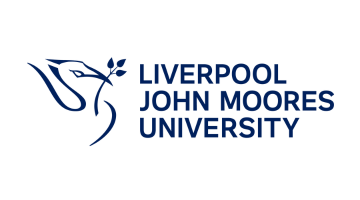Why study this course with LJMU?
- Qualify with the professionally recognised Level 4 Apprenticeship in Counter Fraud Investigation and a Certificate of Higher Education in Counter Fraud Investigation.
- Delivered online through a mix of live and prerecorded lectures and seminars by lecturers with academic and practical experience in the field you will study topics including the fraud landscape (Public and Private Sector), fraud investigations: legislation, evidence & disclosure, building and presenting a case, POCA and fraud types, patterns & trends.
- Working collaboratively with your employer, you will learn through a combination of on the job training and innovative and thought-provoking modules which reflect and challenge current investigative practices and debates.
- Incorporates a variety and depth of understanding as to the role of the counter fraud investigator
Deadline for applications: 30th June 2025
About your course
Study remotely to qualify with a professionally recognised Level 4 Apprenticeship in Counter Fraud Investigation and a Higher Education Certificate in Counter Fraud Investigation.
The Counter Fraud Investigator Apprenticeship is structured as four 30-credit modules studied over a twelve month period, followed by an additional six months during which learners complete their End Point Assessment. Teaching is delivered remotely via a range of synchronous and asynchronous tools, including workshops, lectures, self-led research and group tasks. With the aim of enabling learners to both understand and demonstrate the duties, knowledge, skills and behaviours associated with the Counter Fraud Investigator role.
On completion of the programme learners will be awarded the Level 4 apprenticeship in Counter Fraud Investigation by the Institute of Apprenticeships and the Certificate of Higher Education in Counter Fraud Investigation by LJMU.
The programme is aimed at Counter Fraud Investigators working in law enforcement, other public sector agencies and private sector organisations.
Course modules
What you will study on this degree
The programme is designed to meet the Knowledge, Skills and Behaviours (KSBs) of the apprenticeship standards while at the same time meeting the needs of the employer. Apprentices will be required to successfully complete four core 30 credit modules at level 4 before entering the ‘gateway’ to complete the End Point Assessment (EPA).
Apprentices will pass through the ‘gateway’ once the employer is satisfied the apprentice is consistently working at or above the level set out in the occupational standard, which means the employer will work collaboratively with the university to assess operational competence to ensure the gateway requirements for EPA have been met and that they can be evidenced to an End Point Assessment Organisation (EPAO).
Further guidance on modules
Modules are designated core or optional in accordance with professional body requirements, as applicable, and LJMU’s Academic Framework Regulations. Whilst you are required to study core modules, optional modules provide you with an element of choice. Their availability may vary and will be subject to meeting minimum student numbers.
Where changes to modules are necessary these will be communicated as appropriate.
Core modules
Your Learning Experience
Excellent facilities and learning resources
The programme is designed to be delivered through distance learning facilities; which will be balanced with synchronous (live online) and asynchronous (Pre-recorded) lectures, workshops and seminars. This enables you to experience a rich and diverse learning experience and engage fully with your studies. Teaching can be offered in a block or day release format, meaning there is consistency to your studies but also offers some flexibility to study at times that suits you or your employer.
You will have easy access to support from your module leaders or personal tutor through online tutorials of discussion boards via the virtual learning environment.
Dedicated personal tutor, plus study skills support
There is a high level of support for students on this course and the needs of part-time students and apprentices are thought through. You will be appointed a Personal Tutor when you are inducted onto the course. All apprentice learners will begin their programme of study with an induction period, the primary purpose of which is to foster a sense of community within the teaching group and establish peer-to-peer support networks which will enable learners to thrive and flourish throughout the course. Induction will also provide information as to the variety of support available to learners including academic skills, wellbeing, and career development. Whilst also equipping learners with the knowledge and skills required to manage the apprenticeship journey.
Assessment varies depending on the modules you choose, but will usually include a combination of exams and coursework.
Assessments throughout this programme are designed to reflect the tasks undertaken and challenges experienced by counter fraud investigators in the workplace. Thereby enabling them to apply learning directly to their professional practice, including reflecting upon the experience and identifying opportunities for further development. Each module incorporates a different assessment form and opportunity to receive feedback prior to final submission, enabling learners to maximise their potential and achieve deeper learning.
Where you will study
The programme is predominantly delivered online through a virtual learning environment (VLE). Teaching include live and pre-recorded lectures which will be accessed through the VLE or Microsoft Teams. Assessments will also be accessed and uploaded to the VLE.
Apprentices will be expected to have suitable IT equipment to enable them to meet the requirements of the programme.
Tuition fees and funding
Fees
The fees quoted above cover registration, tuition, supervision, assessment and examinations as well as library membership and student IT support with access to printed, multimedia and digital resources including programme-appropriate software and on campus Wi-Fi.
Financial Support
The University offers a range of scholarships to support students through their studies. You'll find all the information you need on our specialist funding pages, including details of the Student Support Fund and other activities to support with the cost of living.
Additional Costs
In addition to fees, students should also keep in mind the cost of:
- Accommodation
- Travel costs including those for placements, visas and travel for studying abroad and field trips unless paid for by LJMU
- Stationery, IT equipment, professional body membership and graduation gown hire
The University reserves the right to increase tuition fees in accordance with any changes to the maximum allowable fees set by the UK Parliament. In the event of such a change, any fee increase will be subject to a maximum cap of 10% of the total course cost as originally stated at the time of your offer.
Degree Apprenticeships are funded courses, with learning costs being paid to the university by the employer, through the Degree Apprenticeship levy, if a large company, or with the help of the government’s co-investment model, if a smaller company.
If you aren’t already employed by a company that is willing to sponsor you through an apprenticeship, you’ll need to find one. You can do this by regularly checking the Government’s Find an apprenticeship website.
You can also approach an employer yourself to find out whether they would be interested in offering Degree Apprenticeships and ask them to contact us. Our team will be able to explain to them how they can access the correct funding and the next steps.
Entry requirements
Please choose your qualifications below to view requirements
Grades/points required from qualifications:
Work out how many UCAS points your qualifications are worth by visiting the UCAS Tariff Calculator.
Qualification requirements
How to apply
Securing your place at LJMU
To apply for this programme, you are required to complete an LJMU Degree Apprenticeship form. You will need to provide details of previous qualifications and a personal statement outlining why you wish to study this programme.
Prior to starting the programme applicants must have obtained Grade C or Grade 4 or above in English Language and Mathematics GCSE or an approved alternative qualification below:
- Key Skills Level 2 in English/Maths
- NVQ Level 2 Functional skills in Maths and English Writing and or Reading
- Skills for Life Level 2 in Numeracy/English
- Higher Diploma in Maths/English
- Functional Skills Level 2 in Maths/English
- Northern Ireland Essential Skills Level 2 in Communication or Application of Number
- Wales Essential Skills Level 2 in Communication or Application of Number
Alternative international qualifications will be reviewed on a case-by-case basis.
Your university life
From accommodation and academic support to clubs and societies. Find out what LJMU has to offer.
Related Links
Talk to our students
Connect with a current LJMU student for advice and guidance on university life, courses and more.
See what our students are saying
At LJMU we want you to know you're making the right choice by studying with us. You can see what our students are saying about their experience with us through their reviews on the following websites:
Related Links
News and views
Browse through the latest news and stories from the university
The university reserves the right to withdraw or make alterations to a course and facilities if necessary; this may be because such changes are deemed to be beneficial to students, are minor in nature and unlikely to impact negatively upon students or become necessary due to circumstances beyond the control of the university. Where this does happen, the university operates a policy of consultation, advice and support to all enrolled students affected by the proposed change to their course or module.
Further information on the terms and conditions of any offer made, our admissions policy and the complaints and appeals process.



























